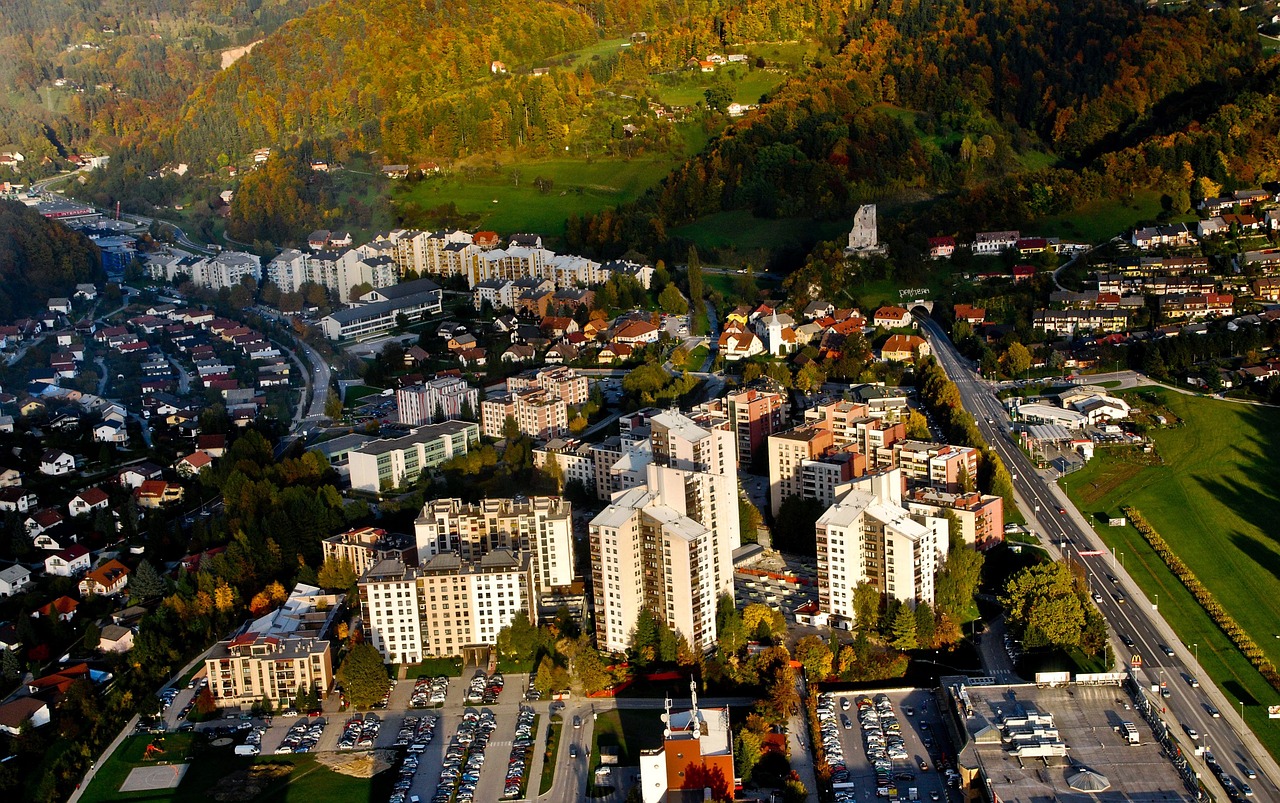Navigating Local Taxes and Business Regulations in Slovenia
Slovenia, located in Central Europe, offers a favorable business environment for both local and international entrepreneurs. However, like any other country, understanding the local taxes and business regulations is crucial for establishing and running a successful business in Slovenia. This article will guide you through the various aspects of navigating local taxes and business regulations in Slovenia, providing you with detailed information to ensure compliance and optimize your business operations.
1. Corporate Income Tax
Corporate income tax is a significant aspect of doing business in Slovenia. The standard corporate income tax rate is 19%, which applies to the taxable profit of resident and non-resident legal entities. It is important to note that Slovenia operates on a worldwide income principle, meaning that both domestic and foreign-sourced income is subject to taxation.
- Calculation: Corporate income tax is calculated based on the taxable profit, which is the difference between the company’s revenues and deductible expenses.
- Payments: Corporate income tax is paid in monthly advance payments, with the final settlement made annually.
- Exemptions and Incentives: There are certain exemptions and incentives available, such as tax incentives for research and development activities, investment incentives, and tax relief for reinvested profits.
- Reporting: Companies must submit an annual corporate income tax return by the end of March of the following year.
2. Value Added Tax (VAT)
The Value Added Tax (VAT) is an indirect tax imposed on the consumption of goods and services in Slovenia. The standard VAT rate is 22%, with reduced rates of 9.5% and 5% applicable to specific goods and services.
- Registration: Businesses exceeding the annual turnover threshold of EUR 50,000 must register for VAT purposes.
- VAT Returns: VAT returns must be submitted on a monthly or quarterly basis, depending on the turnover.
- Invoicing: Proper VAT invoicing is essential, including specific information such as the VAT identification number, invoice number, and accurate VAT calculation.
- Import and Export: Special rules apply to VAT treatment on imports and exports, including the use of the reverse charge mechanism for certain transactions.
3. Personal Income Tax
Personal income tax in Slovenia applies to the income earned by individuals, including employees, self-employed individuals, and freelancers. The tax rates are progressive, ranging from 16% to 50%.
- Tax Residency: Individuals are considered tax residents if they reside in Slovenia for at least 183 days in a calendar year.
- Taxable Income: Taxable income includes employment income, business income, rental income, capital gains, and other specified sources.
- Deductions and Allowances: Various deductions and allowances are available, such as social security contributions, personal allowances, and deductions for specific expenses.
- Reporting: Individuals must submit an annual personal income tax return by the end of April of the following year.
4. Social Security Contributions
Social security contributions in Slovenia are mandatory for both employers and employees. These contributions fund the social security system and provide various benefits, including healthcare, pension, and unemployment insurance.
- Contributions: The total social security contributions consist of the employer’s share, the employee’s share, and additional contributions for specific purposes.
- Calculation: Social security contributions are calculated based on the employee’s gross salary.
- Reporting: Employers must report and pay social security contributions on a monthly basis.
- Benefits: Social security contributions entitle individuals to healthcare services, retirement benefits, unemployment benefits, and other social security benefits.
5. Business Registration
Registering your business is a crucial step when starting a business in Slovenia. The process involves several steps and requirements:
- Business Entity: Choose the appropriate business entity type, such as a sole proprietorship, partnership, limited liability company, or joint-stock company.
- Company Name: Select a unique company name that complies with the naming conventions and is not already registered.
- Registration Authority: Submit the necessary documents and register your business with the Slovenian Business Register.
- Tax Number: Obtain a tax number from the Tax Administration of the Republic of Slovenia.
6. Employment Regulations
Employment regulations in Slovenia govern various aspects of the employer-employee relationship. It is important to understand the following:
- Employment Contracts: Establish written employment contracts that comply with the legal requirements.
- Working Hours: Determine the maximum working hours, overtime regulations, and rest periods.
- Leave Entitlements: Ensure compliance with statutory leave entitlements, including annual leave, sick leave, and parental leave.
- Termination of Employment: Understand the legal procedures and requirements for terminating employment contracts.
Slovenia Image 1:

7. Intellectual Property Protection
Intellectual property protection is essential for safeguarding your business’s intangible assets, such as trademarks, patents, and copyrights. Slovenia provides legal frameworks for intellectual property protection, including:
- Trademark Registration: Register your trademarks with the Intellectual Property Office of the Republic of Slovenia to obtain exclusive rights.
- Patent Protection: Apply for patents to protect your inventions and technical solutions.
- Copyright Protection: Copyright automatically protects original literary, artistic, and scientific works.
- Enforcement: In case of intellectual property infringement, take legal action to protect your rights.
8. Environmental Regulations
Slovenia has implemented various environmental regulations to promote sustainable development and protect the environment. Businesses must comply with these regulations, which include:
- Environmental Permits: Obtain necessary permits for activities that may have an impact on the environment.
- Waste Management: Comply with waste management regulations, including proper waste disposal and recycling.
- Energy Efficiency: Implement energy-efficient practices and technologies to reduce environmental impact.
- Pollution Control: Take measures to control air, water, and soil pollution, including emissions and wastewater management.
9. Tax Treaties
Slovenia has entered into various tax treaties with other countries to prevent double taxation and promote international trade. These treaties aim to eliminate or reduce withholding taxes on cross-border transactions and provide tax relief for foreign businesses and individuals.
- Benefits: Tax treaties provide benefits such as reduced withholding tax rates, exemption from certain taxes, and mechanisms for resolving tax disputes.
- Eligibility: Determine if your business or income qualifies for tax treaty benefits based on the specific treaty provisions.
- Documentation: Maintain proper documentation to support your eligibility for tax treaty benefits.
Slovenia Image 2:

10. Business Support and Incentives
Slovenia offers various support programs and incentives to encourage business development and investment. These include:
- Investment Incentives: Benefit from financial incentives, grants, and tax relief for investments in specific sectors or regions.
- Startup Support: Access startup support programs, incubators, and accelerators to foster innovation and entrepreneurship.
- Export Promotion: Utilize export promotion schemes and services to expand your business internationally.
- Research and Development: Take advantage of funding programs and tax incentives for research and development activities.
11. Data Protection and Privacy
Data protection and privacy regulations are crucial for businesses handling personal data. In Slovenia, the General Data Protection Regulation (GDPR) applies, imposing obligations on businesses, including:
- Data Processing: Ensure compliance with data protection principles when collecting, storing, and processing personal data.
- Data Subjects’ Rights: Respect individuals’ rights, such as the right to access, rectify, and erase their personal data.
- Data Transfers: Apply appropriate safeguards when transferring personal data to countries outside the European Economic Area (EEA).
- Security Measures: Implement adequate technical and organizational measures to protect personal data from unauthorized access or breaches.
Slovenia Image 3:

12. Conclusion
Navigating local taxes and business regulations in Slovenia is essential for establishing and operating a successful business. Understanding the corporate income tax, value-added tax, personal income tax, social security contributions, business registration, employment regulations, intellectual property protection, environmental regulations, tax treaties, business support and incentives, data protection, and privacy will ensure compliance and optimize your business operations in Slovenia.
References
- Slovenian Tax Administration: www.fu.gov.si
- Slovenian Business Register: www.ajpes.si
- Intellectual Property Office of the Republic of Slovenia: www.uil-sipo.si
- Slovenian Ministry of the Environment and Spatial Planning: www.gov.si/en/state-authorities/ministries/ministry-of-the-environment-and-spatial-planning
- European Commission – Taxation and Customs Union: ec.europa.eu/taxation_customs/business/company-tax/slovenia_en
- General Data Protection Regulation (GDPR): eur-lex.europa.eu/eli/reg/2016/679/oj

